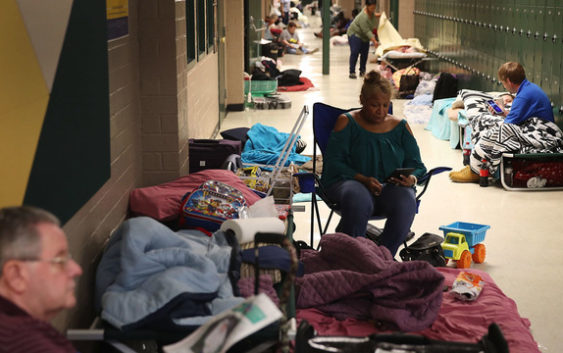- Severe weather leads to fallen trees, car crashes and flooding around the Triangle
- New video shows vehicles being swept away in historic, deadly flash floods in SA on June 12
- $40 million to go to underserved SC counties for Hurricane Helene recovery. Here's what you need to know.
- Family honors Air Force veteran Derwin Anderson Jr. after he died in June flash floods
- City of Wilmington addresses flooding on New Centre Drive
NC lawmakers take first crack at Florence recovery

CHARLOTTE, NC (FOX 46 WJZY/AP) – The first of several anticipated attempts by legislators to address the damage and displacement Hurricane Florence caused in North Carolina begins two weeks after the storm’s rains finally left the state.
The General Assembly is reconvening Tuesday for a special session called by Gov. Roy Cooper.
The legislature is expected to pass laws focusing on immediate needs of affected residents and school districts, some of which still haven’t re-opened their doors.
On Tuesday morning, an act to provide school calendar and employee pay flexibility to school districts affected by Florence was filed in the North Carolina General Assembly.
Senate Bill 2 and House Bill 3 would allow school districts located in counties under a major disaster declaration by the President of the United States as a result of Hurricane Florence to deem up to 20 school days, or the equivalent hours of instructional time, completed.
The new proposal would allow school districts to make up any number of instructional days or hours missed but also provide the option to waive the missed class time.
“School districts that missed class time due to Hurricane Florence but are not located in a county under a federal disaster declaration from the storm would be required to make up either the first two instructional days missed, or the class time necessary to complete 185 instructional days, whichever is lower,” Rep. Tim Moore and Sen. Phil Berger said, in a joint statement.
“To provide income stability to school staff, the act requires educators and employees be compensated the same as if they had worked any scheduled instructional days deemed completed by the public school unit during September and October of 2018,” Moore and Berger explained.
Republican legislators also want to set aside money to cover anticipated matching funds necessary to spend federal recovery dollars.
The session is expected to last one day, with lawmakers likely to return next week to consider requests from Cooper’s state agencies. And lawmakers already are planning to come back to Raleigh in November and January.
The Associated Press contributed to this report.